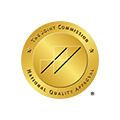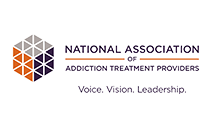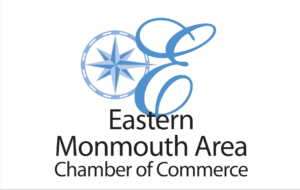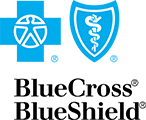Believe in Yourself
Seacrest Recovery Center NJ
Providing substance abuse and mental health treatment, utilizing proven therapeutic methods and individualized treatment tailored to your specific needs
Why Relapse Therapy is Important
It’s commonly believed that once drug or alcohol rehab has ended, patients are completely and forever free of their addictions. Sadly, substance use disorder is lifelong challenge. Addiction treatment gives people the keys for overcoming this challenge and for ensuring that they do not return to old, harmful habits in the future. Just as with many other chronic health issues, substance use disorder entails the ongoing risk of relapse. By recognizing and understanding this risk, people can learn how to maintain their sobriety long-term. More importantly, they can prevent single episodes of relapse from spiraling out of control and derailing their lives entirely. Relapse therapy is designed to give recovering addicts additional tools, support, and information for anticipating, avoiding, and mitigating relapse once their drug rehab programs have been completed.
Also known as relapse prevention therapy (RPT), relapse therapy acknowledges that stressful life events, unhealthy environments, and other challenges are bound to be faced at some point in time following drug treatment. It also establishes the very real risk of people resuming drug or alcohol use when they are ill-prepared for confronting and hurdling these challenges. As such, it is a highly recommended form of follow-up for any drug or alcohol addiction treatment. Some people use RPT as a standalone solution following medically supervised detox. More commonly, however, RPT is a structured part of patients’ long-term recovery plans that begin as soon as they exit inpatient treatment facilities.
What Relapse Therapy Entails
Relapse therapy takes a cognitive-behavioral approach to teaching recovering addicts about the dangers, risks, and realities of relapse. Exiting drug treatment with an overconfident mindset places people at extraordinary risk. Those who erroneously believe that the challenges of addiction end with the completion of drug treatment are at the greatest risk of relapse. These individuals are less likely to seek ongoing support, and less likely to remain constantly vigilant for common stumbling-blocks and triggers. Conversely, those who participate in relapse therapy will remain constantly on guard and ready to leverage proven strategies for overcoming temptation, dealing with stress, and avoiding unhealthy situations, relationships, and environments.
In relapse therapy, the goal isn’t solely showing people that relapse is a possibility. It’s about also convincing them that statistically, relapse is also a likelihood. At one time or another, many recovering addicts will use drugs or alcohol again. With the right post-treatment therapies, it’s possible to prevent single-use events from recurring or from spiraling into a full-blown return to addiction. Thus, therapy additionally entails mentally preparing people for the guilt, shame, disappointment, and lack of confidence that they might feel if they make a misstep. Being able to anticipate these emotions and having the knowledge and skills for confronting and moving past them can help people quickly get their lives back on track post-lapse.
Coping skills development and training are among the most important elements of relapse therapy. This training helps people quickly identify high-risk situations and environments and shows them how to remove themselves or implement effective coping strategies. Participants additionally learn how to:
- Cope with unexpected cravings and urges
- Identify the underlying causes of cravings and urges
- Effectively and safely manage stress
- Implement timely measures for damage control
- Seek qualified help when they need it
Establishing a balanced and sustainable lifestyle is something that those in relapse therapy must also learn to do. These are efforts that can help limit and mitigate triggers by minimizing preventable stressors and ensuring high levels of independence and personal fulfillment. By finding jobs or careers that they can excel in, attaining and maintaining comfortable and stable living environments, and filling their lives with healthy, meaningful, and ultimately supportive relationships, it’s possible for those recovering from addiction to greatly minimize the risk of relapse. However, these achievements aren’t just great for avoiding lapses; they can also prove helpful after a lapse has already occurred. People are more likely to recover from single-use events when they have stability, responsibility, friendships, and other positive things to return to.
Lifestyle modifications are often recommended and implemented during the course of this therapy as well. Making healthy life choices in terms of diet, exercise, sleep, and other efforts that promote both physical well-being and general mood balance can make a world of difference for someone who’s working to avoid relapse. Whether you’re nearing the end of a detox program or exiting a long-term inpatient drug treatment, learning more about relapse therapy can be essential for ensuring your long-term success in recovery. If you’re ready to establish a solid plan that will help you maintain lifelong sobriety, we are here to help. Call us today at 833-610-1174.
Today Is The Day
You Never Have To Feel This Way Ever Again
One simple call to our caring and compassionate staff, and you can be on your way to a lifetime of freedom and recovery

As Seen On Hulu
Seacrest Recovery Center is The Featured Drug & Alcohol Rehab on Jelly Roll's Save Me Documentary on Hulu Originals
Trusted Treatment Provider
Certified and Accredited Both Locally and Nationwide



Our Clients Believe In Us
And We Believe In Them!
Here Is What They Are Saying
About Seacrest Recovery
Your First Step To Recovery
Our Locations

Columbus OH

Eatontown NJ

Willard OH










